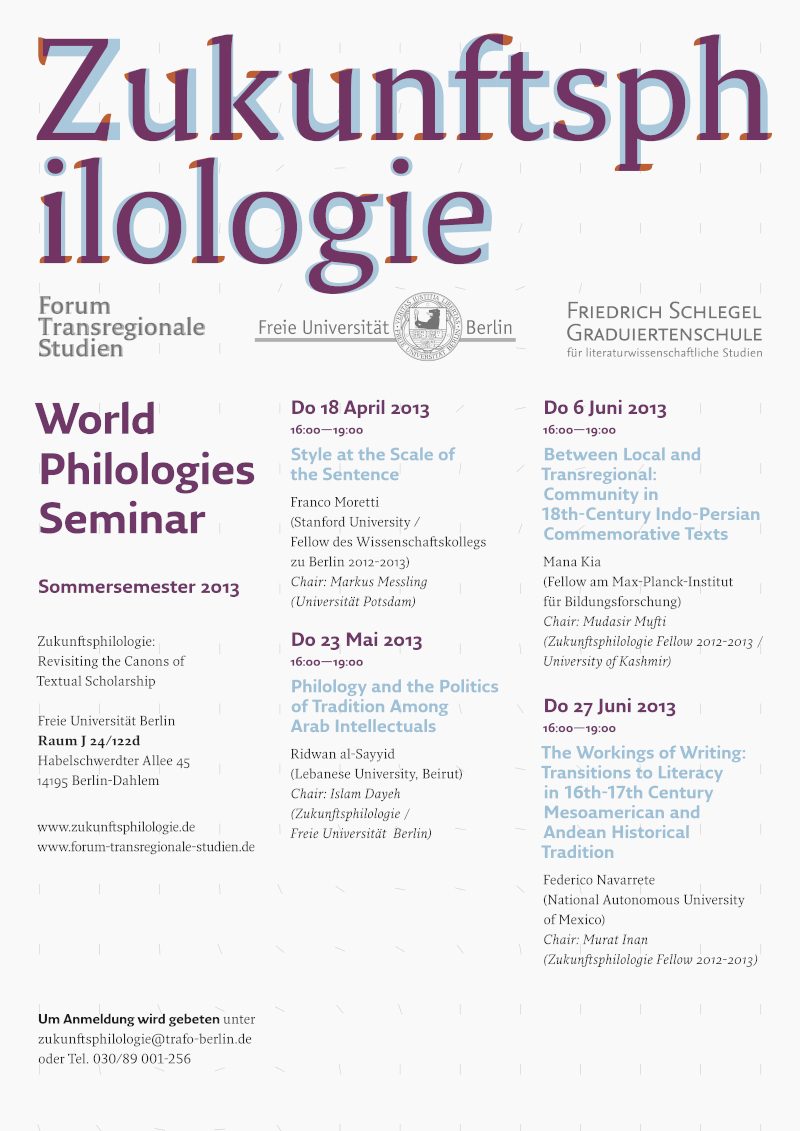In 18th-century India, there was an explosion of taẕkirah (commemorative text) writing, specifically of poetic taẕkirahs, which unlike previous centuries were largely written outside of court patronage. This talk focuses on how to read taẕkirahs as texts of Persianate self and community, and how this can provide us with a historicized idea of difference. The terms local and transregional are invoked as a way to put pressure on historiographical readings of 18th-century difference that locate empire and culture as its distinctive sites. Usually read as sources for literary history, or as repositories for biographical facts, these texts are also rich sources for cultural and social history if one reads past anachronistic analytic categories and evokes the terms of the sources as they were produced and read by their authors and audiences. The second part of the seminar will review samples of taẕkirahs themselves, their colophons and the scholarly framing of them.
Between Local and Transregional: Community in 18th-Century Indo-Persian Commemorative Texts
Mana Kia (Fellow at the Max Planck Institute for Human Development); Chair: Mudasir Mufti (Zukunftsphilologie Fellow 2012-2013/ University of Kashmir)
Freie Universität Berlin, Raum J24/122d, Habelschwerdter Allee 45, 14195 Berlin

Seminar Text
N. Bland (1843): Art. XXXIII.—Account of the Atesh Kedah, a Biographical Work on the Persian Poets, by Hajji Lutf Ali Beg, of Ispahan. in Journal of the Royal Asiatic Society of Great Britain & Ireland, 7, pp 345-392
Mana Kia is a Postdoctoral Fellow at the Center for the History of Emotions at the Max Planck Institute for Human Development in Berlin. She received a Ph.D. from Harvard University in History and Middle Eastern Studies (2011). Her general interests are the connective social and cultural histories of West, Central and South Asia (18th and 19th Centuries). She is currently finishing a book entitled, Sensibilities of Belonging: Transregional Persianate Community before Nationalism, which critiques protonationalist modes of envisioning Persianate culture and societies and offers new modes of understanding the importance of the circulation of people, texts, and ideas at the end of the early modern period. She has also begun work on a project on the early modern ethics of love and loyalty in friendships between Iran and India. In July 2013, she will join the department of Middle Eastern, South Asian and African Studies at Columbia University as an Assistant Professor of Indo-Persian Studies.

